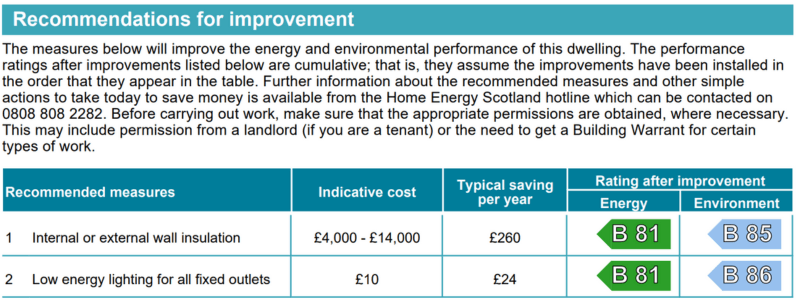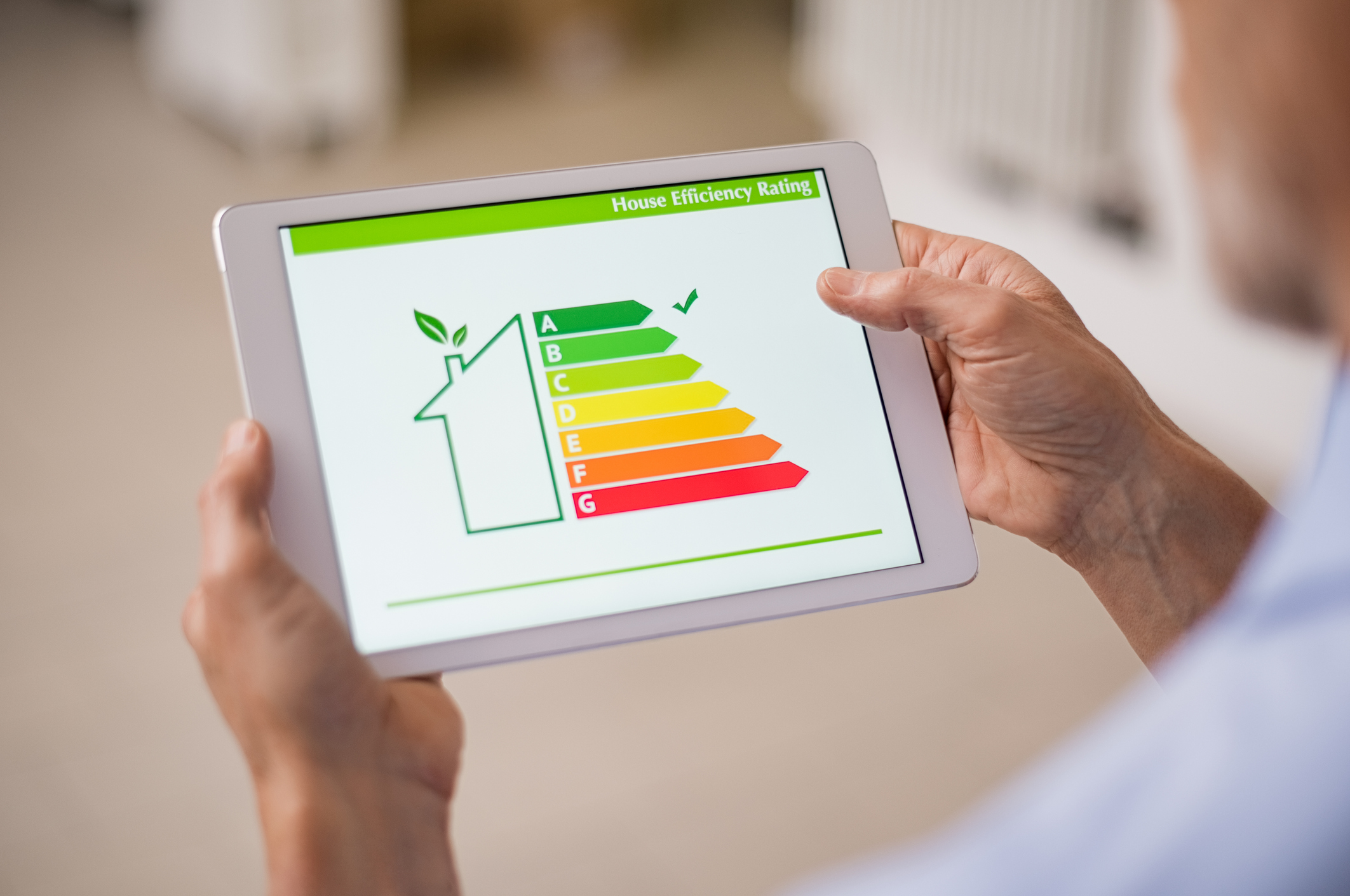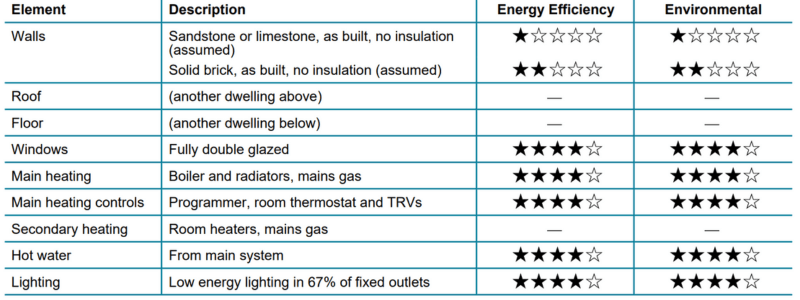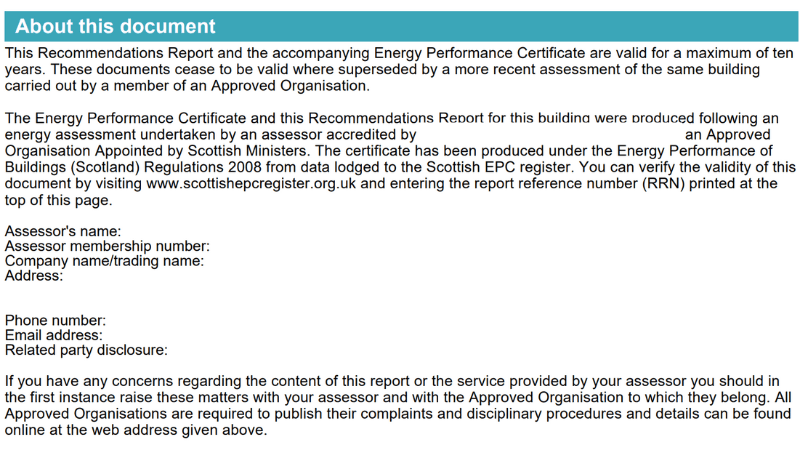Estimated energy costs

This section shows an estimate of the current and potential energy bills of the property. This is useful for knowing how much it will cost you in energy bills over the next few years. It’s also helpful for knowing how much lower the running costs could be if the home’s energy efficiency was improved.
These costs are just for your heating, hot water and lighting. The EPC doesn’t include any additional energy costs from your home appliances. In reality, your energy bills will be a bit higher. However, the costs shown can help you compare properties and see which building could be cheaper to run.
Recommendations

Now we arrive at perhaps the most important section of the EPC: the recommendations.
Here you get a detailed breakdown of the recommended measures including:
- an idea of how much it would cost to install
- how much you could save on your energy bills
- how much it could improve the property’s energy efficiency rating
The recommended measures are shown in order of importance. The energy efficiency improvements figures are based on making the improvements in that order. Of course, you might not be able to complete them all, or in the order listed, but it’s a good guide.
The number of recommended measures will vary, depending on which ones are applicable to your property. In this example, the main priority is wall insulation.
The table shows the updated performance ratings after improvements are made. However they only assume the improvements have been installed in the order they appear in the table.







